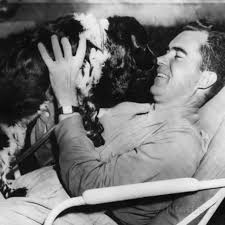One of the things worth watching is the number of media reports listing the presidential wannabes who include the name “Mike Gravel” and the number who do not. I have no particular bias one way or the other — inclusive to the point of including Mike Freaking Gravel versus the desire to limit the list to candidates who have a actual backing and constituency. My internal debate goes like this: “Why not?” “Why?” and circuit back to “Why not?”.
There is no rhyme or reason on when a media source chooses to mention Gravel in a list of names and when they don’t. Note this recent CBS News broadcast.:
Senators Clinton and Brownback are just the latest to join a crowded campaign 2008 field. Already in the running or with an exploratory committee are Democrats Chris Dodd, John Edwards, Mike Gravel, Dennis Kucinich, Barack Obama, Tom Vilsack and Joe Biden, with Bill Richardson expected to announce his plans tomorrow.On the Republican side are Jim Gilmore, Rudy Giuliani, Duncan Hunter, John McCain, Ron Paul, Mitt Romney, Tom Tancredo and Tommy Thompson, with Chuck Hagel possibly considering a bid as well.
For some perspective we`re joined by our National Political Correspondent Gloria Borger and by John Harris, editor-in-chief of The Politico, a new web site that launches next week. Thanks for joining us.
Did a memo go out stating CBS News mentions Gravel, or is it arbitrary and in another mention they’ll skip over him? It’s hard for me to say.
On the right side of the screen I have my presidential preference list.Â
1. Bill Richardson. 2. John Edwards. 3. Barack Obama. 4. Ron Paul.Â
Why Ron Paul? Because indications are Chuck Hagel isn’t running.
Now, with John Edwards and Barack Obama I could easily flip around, and today would be inclined to do so. I parse through the problems of the two.
The politician I am most generally in tune with ideologically who was making passes at the White House, Russ Feingold, opted to not run. His reasoning makes stunning sense. He is now in the majority and in a position of power which he wishes to use. Had he remained in the minority, his state of lack of power would have been worth giving up to run a long-shot bid at the White House.
Feingold out, what we’re left with — right up to the point you get to Dennis Kucinich — is a group of politicians who have made various pretensions to the liberal base while attempting to sweep to a center base of support. Their ideological differences can really only be over-stated, as with the effect on what they are actually going to have to do in the coming political environment and what they can do. For example: trade agreements are going to be reworked around the edges no matter what candidates’ past predilictions on them are –and with the group of Democrats who have come into power, that pressure will be forced upon some of the more “Free Traders”. Amongst the trio of front-runners, Hillary Clinton is the most tedious.
On Hillary Clinton, I am inclined to agree with a a letter to the Atlantic. She has made herself into an effective Senator, a Good Old Boy in a Good Old Boy’s network, with all the drawbacks and pluses that entails, able to navigate through that institution. She lacks the vision for the Presidency — I have a hunch her presidency would be Clintonism writ small. Hence, good Senator, not a particularly striking president.
Barack Obama actually has a fuller record to draw out than John Edwards. Understand, John Edwards had one term in the Senate. You can break this term into two parts: the first four years, where he was legislating in terms of what he thought would get him re-election in North Carolina, and under the auspices of a “centrist” Democrat. And a rocky two year bid for national office — which saw him cling to full support of Bush’s Iraq War policies longer than Kerry did, and ended with him embracing the cause of “Populism” which has taken him on an anti-poverty tour (hence his campaign opener in New Orleans) as his reason for being. Edwards
then shines the best possible light on his pre-electoral career by positing his trial-lawyer career as “fighting for the little guy” against, for example, corporate negligence. I’ve always found Edwards a little empty, but he appears to have decided on a direction and a series of problems to tackle.
Barack Obama has had his two years in the Senate, and a state legislative career. Reading a few things about Obama — most importantly the recent Harpers cover article, and what Obama has said in defense to critics to the liberal spectrum, is that his approach is a replication of about what it was in the Illinois Senate, though if he had his way we would not find out if he makes a pattern of his transition from legislator in the minority to legislator in the majority on the national stage. There is something to be said for someone who can, however mildly, win over — after actually following up on a relatively negative article — the cranky Counterpunch. Understand Obama at bottom as having Hillary Clinton’s perchance to work the system, while having a stronger conviction for Reform.
Maybe.
Obama saw his insurrection primary campaign had him give blistering attacks on foreign policy. (Indeed, the first time I ever heard a reference to Obama was a person saying that there was an “interesting primary battle” in Illinois with an establishment Democrat up against this sort of “Howard Dean-like” figure, a black politician who was exciting a lot of
people.) He unceremoniously removed such speeches from his website, “trimming his sails”, so to speak. While they are currently in the same position, Edwards has moved in the other direction, and gone from his early 2004 presidential campaign of tyring to innoculate his lack of foreign policy experience with a tough stand, to a mea culpa of “I was wrong”.Â
That’s probably the rubric that slides Edwards slightly ahead of Obama (remember — they both don’t really have a whole heck of a lot of experience) when otherwise it would be the other way around.
Now, an explanation on Bill Richardson, and why I posit him as #1 of the bunch. I understand he’s not going to be the Democratic nominee, and indeed after a while I suspect a fairly powerful and used vice-presidency or Secretary of State position will do him equally as well. The two most important policy areas that need attention in our nation’s immediate future are foreign policy and Energy (most importantly moving us to alternative and renewable sources, but in the meantime…) Simply put, Bill Richardson has worked in those two areas. Currently, as governor of New Mexico, he dabbles on the side in the arena of diplomacy — a strange combination that saw him work a cease-fire in Darfur. Hence, Bill Richardson.
But I’m like a Republican supporting Arlen Specter’s or Dick Lugar’s presidential bids. Beyond which, I haven’t much say in this whole affair, and it’s early as Hell. (Heck. Would somebody please announce the formation of an exploratory committee for 2012?) It could be worse. I could be deciding Mike Gravel is the best person for the job… which
would put in line with the Harold Stassen supporters of 1992. At any rate, Bill Richardon may have funny relationships with female underlings. “Clinton-esque”?



